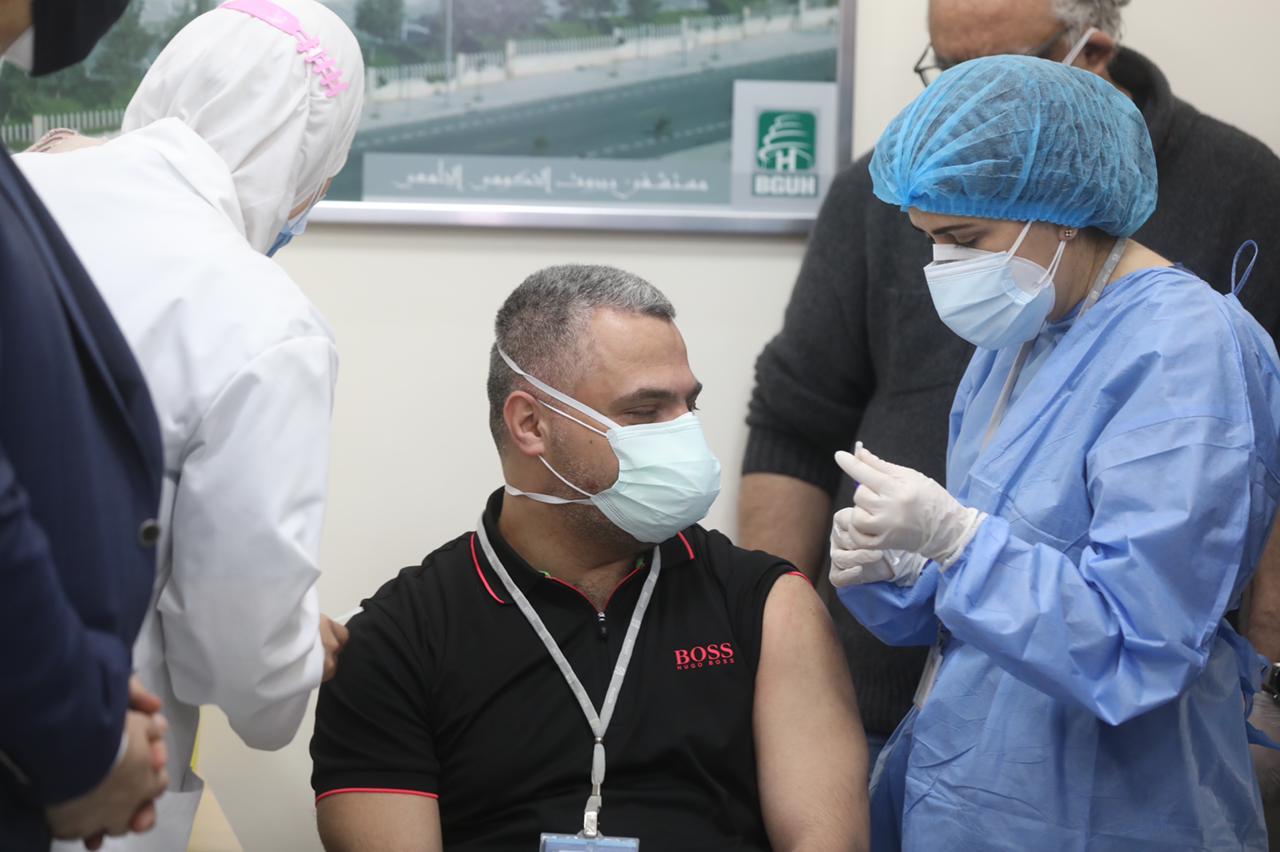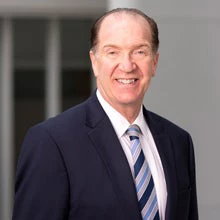With the end of February approaching, I am pleased that the World Bank Group continues to deliver urgent support for our client countries. I would like to highlight key points from my public engagements and notable events.
At the February 12 meeting of G7 Finance Ministers and Central Bank Governors, I provided updates on our CY2020 operations (World Bank commitments up 65%), our COVID-19 vaccinations for developing countries, our work on a joint IMF-World Bank process to accelerate the implementation of the G20’s common framework on debt reduction, and raised the possibility of linking deeper debt reduction to fund climate action and development efforts.
Also on February 12, I met with the vaccine alliance - including President Emmanuel Macron of France - to discuss ways to accelerate vaccinations in developing countries, including the importance of more contract transparency and liability shields to enable deliveries.
The strong February 19 statement by the G7 touched on several important issues including a call for full and transparent implementation of G20 debt relief initiatives.
- The G7 also took clear steps toward having COVID-19 vaccine doses available for developing countries.
- Only when access to vaccinations is expanded to everyone can we resume development after the devastating impacts of the pandemic on people and economies.
- Read more of my thoughts on the G7 statement here.
This month, our Board has approved financings for COVID-19 vaccines for four countries, and by the end of March, I expect at least eight more approvals, reaching $1.6 billion of vaccine financing. The pipeline includes thirty more countries so far. Additional requests are coming in, and we are working to commit the $12 billion we have allocated for vaccination efforts.
- Countries can use this funding to procure doses through COVAX once it can confirm availability of doses and delivery dates, and also through other intermediaries and manufacturers. Greater transparency of contracts between manufacturers and buyers will be an important step to expand vaccine production and purchases.
- We’ve worked closely with Gavi, WHO, and UNICEF on vaccine readiness assessments for over 100 countries. Bank Group teams are working in-country to ensure targeted, effective deployment and financing, while also helping countries navigate vital contract issues including delivery schedules, liability shields and indemnification.
- With deployment so urgent and complex, we’re working through all channels, including with the African Union and directly with manufacturers to accelerate vaccinations.
- IFC, the Bank Group’s private sector arm, is able to invest in vaccine manufacturing once additionality is established, and is working to address bottlenecks in supply chains for vaccines, therapeutics and diagnostics.
- On Sunday, I was encouraged by the kick-off of the vaccination program in Lebanon. Lebanon’s legislature enacted a liability shield, doses from Pfizer are being delivered weekly, and we are working in close partnership with the International Committee of the Red Cross on distribution.
We need to build forward momentum on vaccines, as well as on debt, climate and the wide range of development challenges facing the world community. The upcoming IDA20 replenishment will be critical in providing concessional resources available for the poorer countries as they work to rebuild from the pandemic.
- Read more about each of these priorities in Devex.
On Monday, I congratulated incoming World Trade Organization Director-General Dr. Ngozi Okonjo-Iweala. We’re especially pleased to have Dr. Ngozi at the helm of the WTO because she is a former World Bank Managing Director. As Ngozi rightly pointed out in remarks to WTO members this week, maintaining open trade flows during the COVID-19 pandemic is crucial. It provides access to essential food and medical items and helps limit the pandemic’s impacts. I look forward to a strong new working relationship.
On Thursday, I was pleased to announce the appointment of Makhtar Diop as Managing Director and Executive Vice President of IFC.
- Makhtar has deep development and finance experience from his career at the World Bank and as Minister of Economy and Finance of Senegal and a record of energetic leadership and service to developing countries, in both the public and private sectors.
- As the Bank Group accelerates efforts to boost good development outcomes in client countries, his skills will help IFC pursue the WBG’s private sector development goals and implement IFC’s 3.0 strategy of proactively creating markets and mobilizing private capital at significant scale.
I was also happy to announce the appointment of Stephanie von Friedeburg as IFC Senior Vice President and member of the WBG’s senior leadership team. We’re grateful to Stephanie for her very effective leadership of IFC during the transition and are glad she will continue to play a key leadership role.
Also on Thursday, Melinda Gates and I addressed the importance of putting women at the center of rebuilding efforts as the world recovers from COVID-19. In our joint Bloomberg op-ed, we called on governments to address three key areas:
- Countries can accelerate the digitization of government identification systems, payment platforms, and other critical services, in partnership with the private sector. Advanced digital systems can help identify women in need so they can receive cash quickly and securely.
- Governments can remove barriers to women’s full inclusion in the economy, whether as entrepreneurs or employees. Closing gender gaps in entrepreneurship would help reduce poverty, create jobs, and spur growth and innovation.
- Leaders must commit to ensuring a strong education for girls through at least secondary school. Education is key to future employment opportunities and to women’s ability to have power and influence in their own lives.
I remain thankful for the support and efforts of our shareholders, staff, and partners across the world during very challenging times. I am encouraged by the progress and am eager for the World Bank Group to continue its strong contributions to recovery in the months ahead.
This post was originally published on LinkedIn.



Join the Conversation